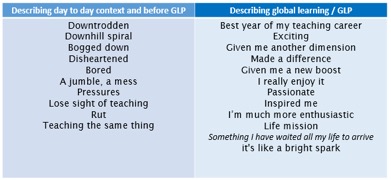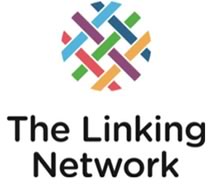Global Learning Fortnight, 27th Nov – 10th Dec
Global Learning Fortnight: 27 November – 10 December 2023
The Global Learning Network is a group representing global learning and development education centres across England. DECSY is a part of this network, that has recently changed it’s name from  CoDEC. This fortnight is a chance to celebrate Global Learning and the TGLN network.
CoDEC. This fortnight is a chance to celebrate Global Learning and the TGLN network.
Not sure what or how to define Global Learning. Read on as Clive Belgeonne, one of our Global Learning Advisers, explains more…
Global Learning – Why it matters. Clive Belgeonne DECSY (www.decsy.org.uk)
Is all learning global and has it always been?
What do we mean by global learning and why is it important? In a sense, all learning is global in our increasingly interconnected and globalised world. It can be argued that this has been going on for thousands of years through migration, voyages of ‘discovery’ and colonial invasions, though in the last two cases they were not often predicated on mutual learning. Arrogance and notions of superiority led local cultures to be looked down upon. Western mindsets saw most indigenous cultures as primitive and backward, yet ironically now that the Western model of development is threatening the survival of humanity and the myriad species with which we share the planet, we are belatedly realising that we need to learn from these cultures (those that remain) as they have always recognised the need to live in harmony with nature.
For people living in Western Europe, the influences of the Roman Empire on many areas of human development are still evident, yet the Romans were often building on ideas developed from the Greeks, who in turn, were influenced by the Egyptians and Persians. However, the influence of non-Western ideas has not always been acknowledged. It is only in recent decades, for example, that the influence of Islamic scholars on fields as diverse as science, mathematics, astronomy, philosophy and medicine has begun to be recognised as well as their contribution to the Renaissance.
What do we mean by current notions of global learning?
According to The Global Learning Network (GLN – England):
Global learning helps equip children and young people to live successfully and responsibly in an interconnected world. Global learning is closely related to ‘the Global Dimension in the Curriculum’ and ‘Education for Global Citizenship’. Global learning is not an ‘additional subject’ to cram into an overcrowded curriculum, but goes to the heart of what education is for. (GLN 2023)[1]
In England, global learning developed from a number of strands of education with a social and environmental purpose (development education, environmental education, human rights education, peace education, global citizenship education, education for sustainable development). The formation of the Department for International Development (DfID) in 1997 brought many of the strands of education together in the global dimension:
The global dimension explores what connects us to the rest of the world. It enables learners to engage with complex global issues and explore links between their own lives and people, places and issues throughout the world. The global dimension can relate to both developing and developed countries. It helps learners to imagine different futures and the role they can play in creating a fair and sustainable world. (DfID 2005) [2]
In 2013 the Global Learning Programme (GLP)[3], funded by DfID, promoted the term global learning, as defined above. From 2013-2018 more than 7,800 schools engaged with the GLP which set up over 400 Expert Centres (learning hubs with partner schools) which helped to establish the notion of global learning.
The term has also been taken up by the Association of American Colleges and Universities:
Global Learning is a critical analysis of and an engagement with complex, interdependent global systems and legacies (such as natural, physical, social, cultural, economic, and political) and their implications for people’s lives and the earth’s sustainability. Through global learning, students should:
- become informed, open-minded, and responsible people who are attentive to diversity across the spectrum of differences,
- seek to understand how their actions affect both local and global communities, and
- address the world’s most pressing and enduring issues collaboratively and equitably. (AACU 2023) [4]
Common to all these definitions are a number of key concepts. There is the recognition of our shared humanity across the globe and ‘interconnectedness with all life and living’, the concept of interdependence, both local to global and past to present and future. These have implications for how we relate to others:
The courage not to fear or deny difference; but to respect and strive to understand people of different cultures, and to grow from encounters with them. (Daisaku Ikeda)[5]
The need to be comfortable with and willing to engage with difference requires certain dispositions and skills such as open-mindedness, how to engage in dialogue (active listening, ability to engage with and accept multiple perspectives), the ability to deal with complexity and uncertainty. Interdependence also “implies that we recognise how our lives impact others and the planet, acknowledging power relationships and inequalities” (GLN). This necessitates an understanding of power dynamics and a commitment to social justice (including gender equity). Bourn (2014 p5) summarised these dispositions as ‘A Sense of Global Outlook – Recognition of Power and Inequality in the World – Belief in Social Justice and Equity – Commitment to Reflection and Dialogue.’ [6]
Links to Sustainable Development Goals
Global Learning clearly has links to all of the UN Sustainable Development Goals (SDGs). However, it is most explicitly linked to SDG 4.7, that by 2030 we:
ensure all learners acquire knowledge and skills needed to promote sustainable development, including among others through education for sustainable development and sustainable lifestyles, human rights, gender equality, promotion of a culture of peace and non-violence, global citizenship, and appreciation of cultural diversity and of culture’s contribution to sustainable development.[7]
In England, Our Shared World was formed in 2019 to bring together a large network of actors (now over 300 organisations and institutions) seeking to advocate for and support the successful realisation of SDG 4.7 across England by 2030, “equipping our society to create a more sustainable, fairer, peaceful and resilient world.”[8] The network is free to join.[9]
Impact of global learning on teaching
Evidence from the Global Learning Programme (GLP) showed that engaging with topical, real-world issues was motivating for both pupils and teachers. Currently teaching in England is facing a recruitment and retention crisis. The GLP noted the level of motivation that teachers felt before engaging meaningfully with global learning to how they felt after (Bentall & Hunt 2018)[10]:

As one primary teacher said (GLP 2017):
(Global learning) provides a wider context for improving standards in core subjects. Children become passionate and engaged, and you, as a teacher, rediscover that spark that drove you to become a teacher in the first place[11].
This enhancement of motivation is endorsed by a major recent evidence review (Bourn and Hatley 2022 p71):
…global learning approaches can be a valuable way of securing teacher retention, to give them confidence and motivation, and to remind them of the wider social purpose of education. [12]
The GLP also noted the positive impact of global learning on pupils in terms of developing them as caring and active global citizens (Hunt 2018):
Pupils see themselves as part of a global community that they care about and they want to make fairer. Pupils have greater awareness of complex global issues and are better equipped to engage and make a positive contribution to a globalised world[13].
Finally, the recent evidence review quoted above notes the positive impact of this engagement with global issues on teaching and learning (Bourn and Hatley 2022 p72):
There is evidence from a range of studies that demonstrate that global citizenship themes help to raise the quality of teaching and learning, improve OFSTED ratings, and increase the engagement and support of parents/carers and the wider communities around schools.
Further information and support on global learning:
- The Global Learning Network https://www.thegloballearningnetwork.org/
- The Global Dimension https://globaldimension.org.uk/
- The Global Learning Programme resources https://globaldimension.org.uk/the-global-learning-programme/
- Development Education Research Centre https://www.ucl.ac.uk/ioe/departments-and-centres/centres/development-education-research-centre
[1] https://www.thegloballearningnetwork.org/global-learning/what-is-global-learning/
[2] https://globaldimension.org.uk/resources/developing-the-global-dimension-in-the-school-curriculum/
[3] https://www.pearson.com/en-gb/news-and-policy/reports-and-campaigns/global-learning-programme.html
[4] https://global.charlotte.edu/about-us/what-global-learning/
[5] https://www.thegloballearningnetwork.org/global-learning/what-is-global-learning/
[6] https://discovery.ucl.ac.uk/id/eprint/1492723/1/DERC_ResearchPaper11-TheTheoryAndPracticeOfGlobalLearning[2].pdf
[7] https://www.globalgoals.org/goals/4-quality-education/
[8] https://oursharedworld.net/
[9] https://oursharedworld.net/join-our-shared-world/
[10] Bentall, C & Hunt, F. (2018) Teachers and the GLP in England: Engagement and Impact. DERC Seminar Series presentation, 20 Nov, 2018. London: UCL Institute of Education
[11] Sam Olubodun, Meadow Primary School, Great Sutton, Cheshire, GLP Publicity flyer 2017
[12] https://discovery.ucl.ac.uk/id/eprint/10147491/
[13] Hunt, F. (2018) GLP in England: main findings – draft. Unpublished report. London: GLP. For more information contact: f.hunt@ucl.ac.uk




